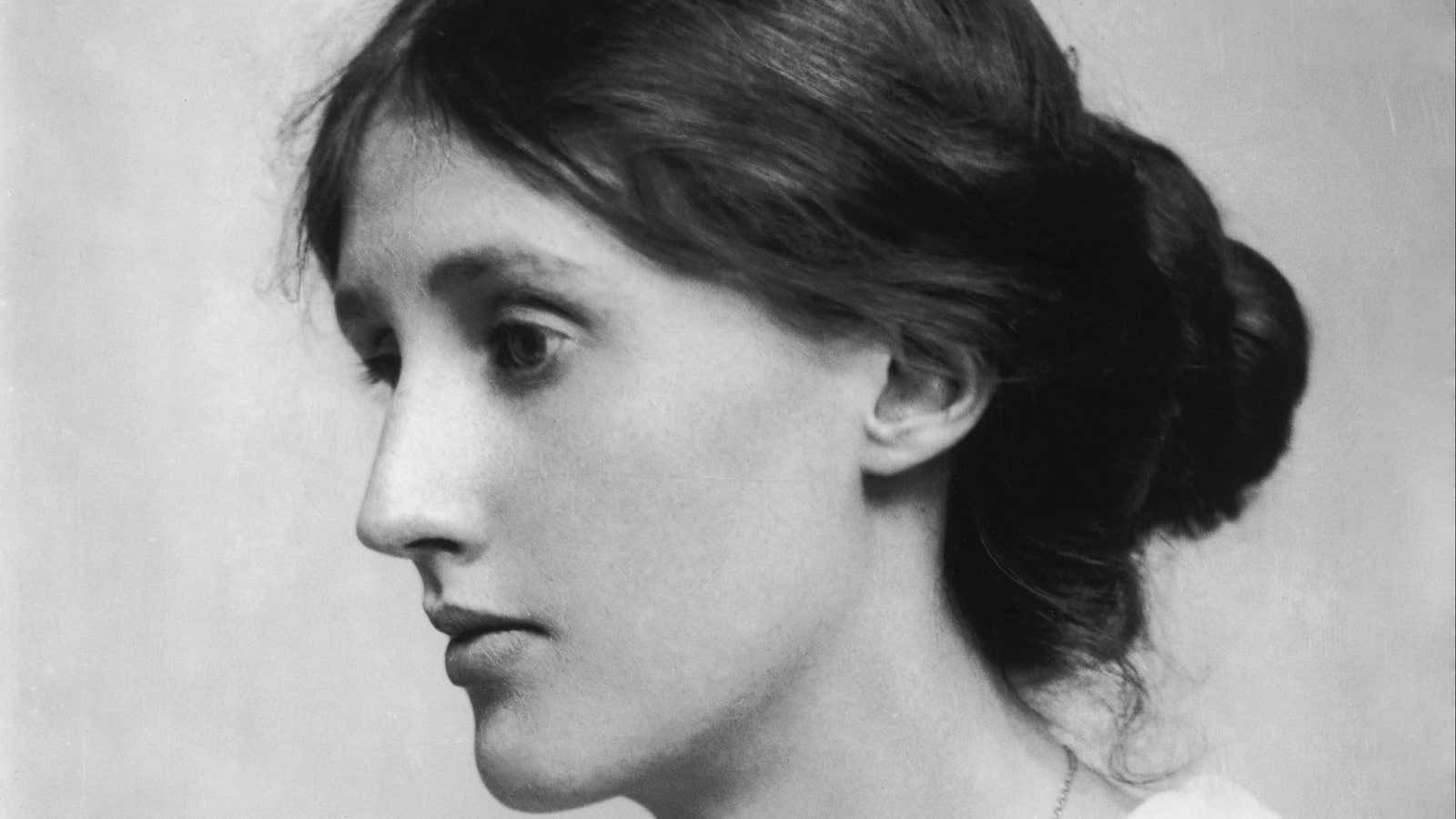Virginia Woolf knew the enormous potential of a closed door.
The literary icon, the subject of today’s (Jan. 25) Google doodle, was a master of elevating domesticity through dizzying, non-linear novels, most famously Mrs. Dalloway and To the Lighthouse. But it’s her most literal work, a slim volume of essays published in 1928, through which she’s often memorialized in mainstream culture.
In A Room of One’s Own, the English writer, born 136 years ago this day, argued for what is simultaneously obvious and beyond reach today: For a woman to truly think and create, she has to be unshackled from the duties normally foisted on her because of her gender. That is, she needs paper. Woolf put the price of writing at an annual £500 (about $41,000 today) and “a lock on the door.” She famously summed up her case: “A woman must have money and a room of her own if she is to write fiction.”
The means to afford a private study in one own’s home allows a person to think and write away from prying eyes, fearlessly and calmly—in essence, said Woolf, like a man can. Jane Austen wrote “without hate, without bitterness, without fear, without protest, without preaching,” said Woolf, “That was how Shakespeare wrote.”
Steady income also allows a woman who wants to pursue the arts a freedom of movement, the permission to see the world as an explorer does. She wrote:
If only Mrs. Seton and her mother and her mother before her had learnt the great art of making money and had left their money, like their fathers and their grandfathers before them…. We might have been exploring or writing; mooning about the venerable places of the earth; sitting contemplatively on the steps of the Parthenon.
In Woolf’s mind, this lack of experience and constant struggle from an inferior position in society has consequences for fiction. In comparing Charlotte Brontë and Jane Austen, she pointed to a passage in Jane Eyre that she considered imperfect, writing:
The woman who wrote these pages had more genius in her than Jane Austen; but if one reads them over and marks that jerk in them, that indignation, one sees that she will never get her genius expressed full and entire. Her books will be deformed and twisted. She will write in a rage where she should write calmly. She will write foolishly where she should write wisely. She will write of herself where she should write of her characters. She is at war with her lot. How could she help but die young, cramped and thwarted?
One could not but play for a moment with the thought of what might have happened if Charlotte Brontë had possessed say three hundred a year.
And ultimately it was money, said Woolf, that allows women to be taken seriously as writers. “Money,” she said, “Dignifies what is frivolous if unpaid for.”
